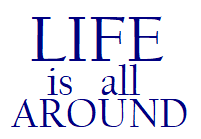“Religion and Spirituality”: this is a very subtle topic. It is difficult to discuss these two since they intersect in many cases. However, this does not mean that they are the same. There are important differences between the two. And each has its own benefits and characteristics.
From spirituality to religion
To start with, it is useful to note that religion usually starts as a spiritual movement. When a new saint, prophet, or enlightened presence appears, everything is fresh, and people are naturally drawn to this spiritual being. This attraction is natural.
After all, if we see that somebody’s experience is enhanced and more profound than ours, we naturally want to reach that point. We thus take the decision, even unconsciously, to follow this person, ask for advice and walk life’s journey with their guidance.
Once this presence is no more available to people, those following this spiritual movement want to protect what they have found. They want to make all accumulated knowledge and understanding available to everyone, for both current and future generations.
At the same time, the followers also want to safeguard this spiritual movement from any changes that may happen in the future and hamper its effectiveness. They understand that the practices work only if some rules are followed. So in the name of preserving and securing the future of this spiritual movement, they start organizing everything. And then it becomes a religion.
In other words, a spiritual movement naturally tends to organize itself into a religion. But what are their main differences?
Seeking and believing
When one is in a spiritual movement, the first step is to admit that they do not know. Once they know that they do not know, they seek. This is an important point. Because they do not know, but they can see that this enlightened presence knows, they seek guidance from it.
This presence ensures that it provides the right advice and practices so the seekers can know what they are looking for. At the same time, the very aura of this presence may often work as a boost towards the success and fulfillment of the followers around. So through practice and experience, the seekers reach a certain understanding and knowing that they were craving.
When this enlightened being is no more available, those followers want to make their knowing available to all. However, they do not usually have the richness of experience nor the capabilities of the enlightened being and thus cannot naturally provide the same guidance. This becomes more and more acute and noticeable with future generations of seekers. As a result, this knowing that came out of experience slowly takes the form of knowledge, the form of written “truths”.
Now, this is a main difference between spirituality and religion. A spiritual seeker wants to know something by experience, whereas a religious follower believes he knows something. And one usually believes something because it is written somewhere or because others have said it is true. In other words, the means of understanding and knowing between spirituality and religion changes.
A note about belief
Belief is a tremendous tool. If one uses it right, it can provide sheer confidence. You can succeed in what you do only when you believe you can do it. However, as with any tool, if one misuses it, belief can cause trouble.
Do not take what I say at face value. You can see for yourself. What is the basis for all fights, wars, and disputes in this world throughout history? From how I see it, it is one man’s beliefs versus another man’s beliefs, whether these beliefs are social, racial, religious, or otherwise. Would they start a war or even an argument if they believed nothing?
The moment you believe something, you may become blind to something else, even without being aware of doing so. At its worst version, belief can cause a jihad, a crusade, or any other “holy” war. However, at the same time, belief can be a need for many people in their lives.
The need to believe is psychological. Because some want to feel secure, they decide to believe something. This can relax their inner tension and make them feel they know something and are right. Of course, everyone else is wrong in their eyes, but they still feel good that they are on the “right” side.
From religion to spirituality
It appears that religions have kept some spiritual aliveness that made them what they are. That being said, it comes in handy if one can distinguish between the “dry” commandments and the “spiritual” directions one religion may share. Of course, this may not always be straightforward.
If one wants to be sure that what they know is true, there can be an alternative. That is a turn to spirituality. You do not need to do something particular or denounce anything. All you would need to do is see that you do not know. This was the fundamental step the followers of the initial spiritual movement took in the first place.
Once you see that you do not know, your intelligence will naturally seek to know. It cannot simply sit here with “I do not know”. To make it clear, when this happens, seeking is not an option anymore; your intelligence will anyway seek. Then everything can start to take the corresponding trajectory to fulfill this craving.
This inner step also has the welcoming effect of bringing down the tension and disputes in your surroundings and, in turn, in the whole world. After all, if you saw that you do not know, would you have a reason to fight with anybody?
Takeaway
- A spiritual movement may slowly organize itself into a religion
- Spirituality means seeking to know by experience, whereas religion means believing to know
- The first step in spirituality is realizing that you do not know

